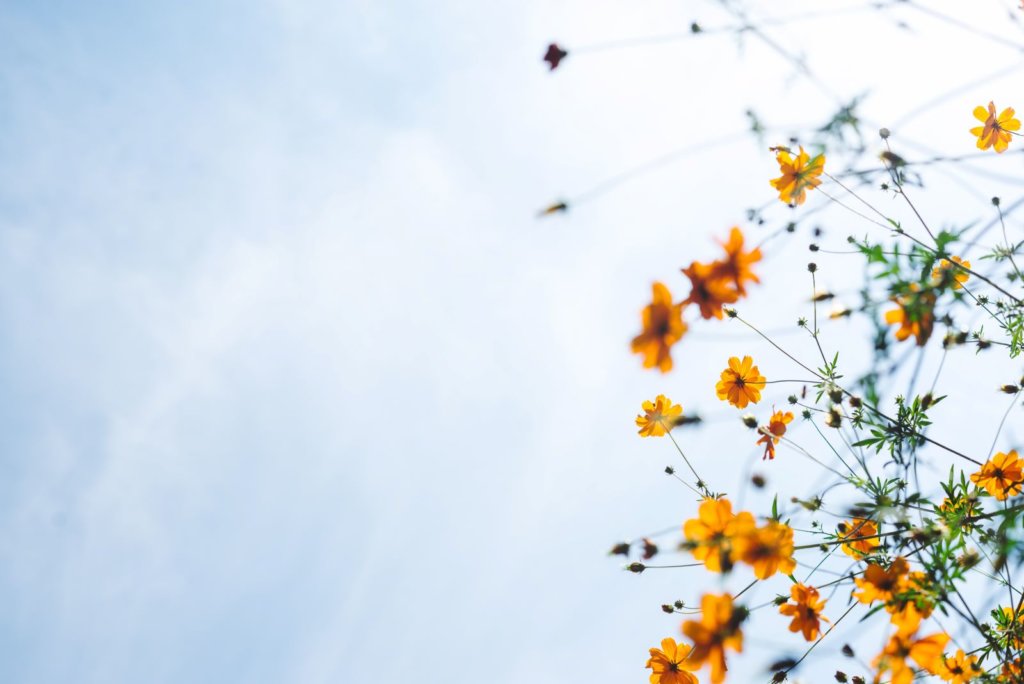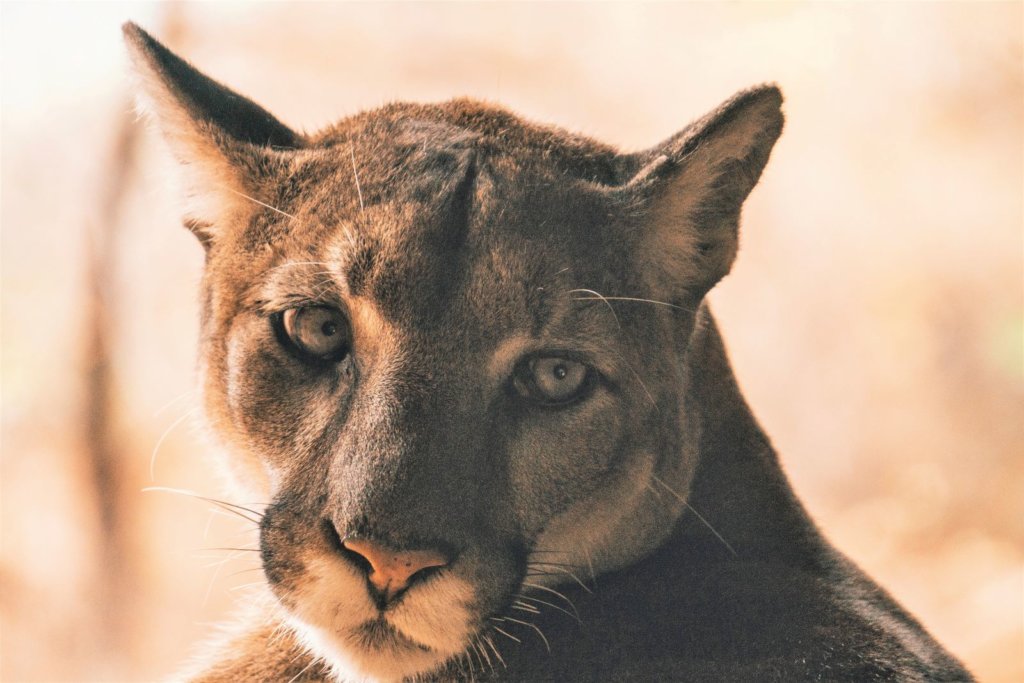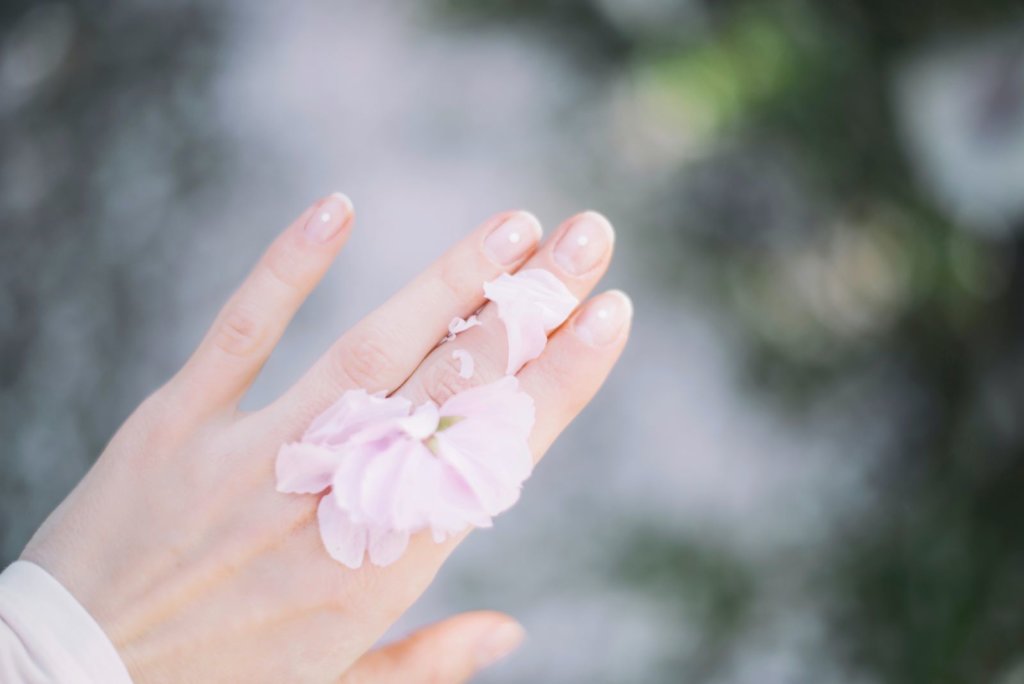For a long time, I’ve strived to make my home a sanctuary. I want it to be a safe place, free from chaos and aggravation. In my ideal world, you wouldn’t hear a jackhammer, music from a neighbor, car alarms, or any of the other issues that go along with high-density living. Many years ago, I was on the quest for the perfect sanctuary space. I moved on average every three months for three years. In some places, I stayed longer, but in others, I stayed shorter.
I moved to the middle of nowhere Missouri in an attempt to find my safe refuge and even there, a sanctuary couldn’t be found. I heard a train whistle piercing the air regularly. Even in the remote countryside, I was irritated by sounds. Not only that, I worried about snakes, ticks, and wild animals. You would think after searching for so long I would give up the idea that I could ever find a “perfect” place, but I didn’t.
When I moved to my current apartment, it felt like a gift from God. I was living in a quiet place where I didn’t need a car and next door to a friend to boot. For a long time, my apartment was at the top of my gratitude list. That’s not the case anymore. I don’t dread being home, but I don’t love it either. The past month especially has been rough because I’ve contended with construction next door, the sounds of a baby crying, weed wafting through the air, and much more.
In other words, home does not feel like a sanctuary. Will I move? My mind is spinning contemplating various possibilities but I haven’t settled on anything. More will be revealed on that one, but what I’m coming to realize is I’ve been trying to control and manage external circumstances to create an internal feeling.
I want everything on the outside to be fine and dandy to feel fine and dandy on the inside. But that’s like telling the ocean to stop ebbing and flowing. In life, nothing is ever perfect. Even if I lived somewhere remote and away from people, I’d have to contend with other problems like wildlife or lack of community. Instead of seeking an external sanctuary, I’m starting to ask the question, “How do I create a sanctuary on the inside?”
I already have a meditation practice, but I’m not taking the time to visualize a beautiful place free from disturbances. I’m not giving my nervous system the chance to learn what that feels like. The brain doesn’t know the difference between imagination and reality, which is why everyone and their mother talks about the power of visualization. I guess what I’m saying is perhaps it’s time to seek a sanctuary within my own mind and body.
My spiritual teacher says, “If one has to take refuge in any entity, or has to contemplate any entity, one should take refuge in or think about only the Supreme One because whenever the mind broods on a second entity, it will become one with the latter; that is, if the mind constantly reflects on physicality, one’s whole psycho-spiritual existence will become physical.” He also says, “An individual always seeks out a safe refuge, but no refuge can give lasting shelter. Only Cosmic Consciousness is the Supreme Refuge.”
I want lasting shelter. I want a place I can go to anytime and not contend with reality. That place exists, within my mind, and now it’s up to me to visit.
I dream of a world where we understand sanctuaries exist both internally and externally. A world where we remember if we can’t find what we want in the outside world, we can certainly find it in the inside one. A world where we realize true refuge comes from aligning ourselves with divinity.
Another world is not only possible, it’s probable.
For a long time, I considered myself safe only if there was no presence of danger. That makes sense if you look up the word “safe” and “safety” in the dictionary. Merriam-Webster defines safe as “secure from threat of danger, harm, or loss.” That’s how I’ve tried to live my life: not running with scissors, wearing my seatbelt, looking both ways when I cross the street, etc. It’s been my prime objective to avoid danger. However, if you live long enough, you soon realize you can’t avoid danger.
To be alive means to encounter threats. They could be in the form of other people, like a mugger or a drunk driver; a wilderness threat like a snake or a wasp; or a natural disaster like a flash flood, fire, or earthquake. There are more threats, of course, I’ve just named a few, but the point is, no one can live in a safety bubble. It’s not possible. How then do we keep ourselves safe? What does safety even mean in that context?
To go back to etymology, the word “safe” was derived from the Old French word sauf, which means protected and watched over. I like that definition because it means even in dangerous situations, I can be safe because I’m protecting myself, I’m watching over myself. In other words, I’m making good choices to ensure my eventual safety. That could be slowly backing away from a mountain lion, carrying pepper spray to ward off an attack by a person, or evacuating my home in the case of a fire. Just because there’s risk of harm doesn’t mean harm is inevitable.
When it comes to safety, that’s the piece that’s been missing for me. I discount my ability to take care of myself, to show up for myself in dangerous situations. Instead, I’ve believed the worst possible thing will happen and I’m helpless to prevent it. Um, not true. I keep a cool head in stressful situations, choose wisely, and prepare as much as I can in advance, like looking up what to do if encountering a mountain lion. That’s called keeping myself safe.
For someone like me who is perpetually worried about safety, who’s scared of danger, and tries to outsource my safety to someone else sometimes, recognizing the power and ability I have within me is huge. That may not be you. You might be a person who already feels confident in yourself and your abilities, but for the person who identifies with me, the anxious scaredy-cat, I hope you hear me when I tell you: You can do this.
I’m reminded of the quote by A.A. Milne, author of Winnie the Pooh who said, “You are braver than you believe, stronger than you seem, smarter than you think, and loved more than you know.” Yes. We are. I don’t know about you, but I often sell myself short. I don’t want to do that anymore. Having an inferiority complex is not accurate because as my spiritual teacher says, “A person must not suffer from an inferiority complex, because that person and his or her friends and siblings are all the progeny of the same Progenitor. They come from the same origin.”
That means I’m just as capable as anyone else. That means I absolutely have the power within me to protect myself, to keep myself safe. Not because I’m avoiding danger at all costs, but because I’m making choices in the moment to minimize risk. That matters. A lot.
I dream of a world where we recognize we are safe not when we avoid danger, although that may be a part of it, but rather due to what happens after the threat arises. A world where we remember we have a force within us, an instinct to keep us alive. A world where we understand we are capable people and we create safety for ourselves.
Another world is not only possible, it’s probable.
Lately, I’m struggling to accept reality. I don’t mean things like the Earth being round, I mean the reality of my life. For instance, a client is one month late on a payment. I haven’t heard a peep despite the repeated telephone calls and emails I’ve sent. Every day I check my bank account hoping the payment has arrived, and when it doesn’t, I call them again, email them again, and still nothing. I’m having a LOT of trouble accepting that situation. And then there’s what happened on Saturday.
My next-door neighbor, the one that lives in a house, hired a construction crew to jackhammer their pool from 9 a.m. to 3:30 p.m. Yes, I used noise-canceling headphones, and yes it helped a lot, but still. Reality was not what I wanted. When I fantasized about how I would spend my Saturday, it was not wearing headphones all day.
For things I don’t enjoy, a part of me says, “No! It’s not supposed to be this way! Something different is supposed to happen!” It’s true I want a different reality, but that doesn’t mean it’s occurring despite my best efforts. If there’s a way for me to will my desire into existence, by golly, I’ll do it. And yet, there comes a point where there’s nothing left to do. There comes a time when you just have to wait for the jackhammer to finish, literally and metaphorically.
The only time I felt peace on Saturday is when I surrendered, when I stopped fighting reality. When I said, “You know what? This sucks. I don’t like it. But there’s nothing I can do to change it and instead of spending energy wishing things were different, I’m accepting what is.”
I don’t want to sit with pain because it’s well, painful. It’s uncomfortable. I try my best not to feel uncomfortable, but that’s not reality. In reality, life is messy, uncomfortable, it doesn’t go our way. In reality, a client is late on a payment and a jackhammer runs for about six hours. I can’t dictate reality but I can control how much or how little I’m surrendering. There’s a story I like about this.
A professor walked into class one day, held up a cup of water for all to see, and asked, “How much do you think this cup weighs?” The students answered, “50 g! 100 g! 125 g!”
“What would happen if I held the cup like this for a few minutes?” the professor asked.
“Nothing.”
“What would happen if I held it up like this for an hour?”
“Your arm would begin to ache.”
“You’re right. What would happen if I held it for a day?”
“Your arm would go numb, you would have muscle stress and paralysis and have to go to the hospital for sure!” one of the students shouted amid laughter.
“Very good. But during all this did the weight of the cup change?”
“No.”
“Then what caused the arm to ache and the muscle stress?” the professor asked.
The students were perplexed.
“What should I do now to come out of pain?” asked the professor.
“Put the cup down!” said the students.
“Exactly,” the professor replied.
I don’t have a magic wand to make things the way I want them to be, but instead of expending energy stewing in irritation, I can put the metaphorical cup down. I can say, “OK,” and stop fighting. Surrender isn’t sexy in action-oriented cultures, but there’s a reason it’s mentioned so often in spirituality. Surrender usually leads to serenity and that’s certainly something I could use more of. I bet other people could too.
I dream of a world where we accept reality. A world where we understand the wisdom in no longer fighting circumstances, of instead surrendering to what is. A world where we let go of what we can and cultivate a feeling of serenity.
Another world is not only possible, it’s probable.
All week the topic of self-compassion versus self-esteem has come up in conversation with friends. I learned recently that what I thought was self-compassion is actually self-esteem and the two are very different! That matters because self-compassion is the trait that gives us more motivation, more grit, better health, and greater happiness, according to research.
Self-compassion is the desire to alleviate your own suffering whereas self-esteem is a positive judgment of yourself. It’s saying things like, “I’m a good person, I’m a success, I’m attractive.” Self-esteem is important because the opposite, hating yourself, can lead to some dark places, but the trouble with self-esteem is it’s conditional. It’s dependent on you continuing to do things that bolster your self-worth: acing a test, killing it at work, etc. What happens when you fail?
As for me, I keep leaning into self-esteem when I fail. I say things like, “It’s OK, you’ll do better next time.” Or, “You got this! You can do it!” The trouble is, self-esteem messages don’t work.
Juliana Breines and Serena Chen conducted a study at UC Berkeley about a decade ago where students were given a difficult vocabulary test that everyone failed. The researchers split the students into three groups: a self-compassionate group, a self-esteem group, and a control group.
In the self-compassion group, students were told, “If you had difficulty with the test you just took, you’re not alone. It’s common for students to have difficulty with tests like these. If you feel bad about how you did, try not to be too hard on yourself.” The self-esteem group was told, “If you had difficulty with the test you just took, try not to feel bad about yourself – you must be intelligent if you got into Berkeley!” The control group was told nothing.
The students were informed they would receive a second vocabulary test and were given a list of words and definitions they could study for as long as they wanted before taking the next test. The researchers used study time as a measure of students’ motivation. They found students who were told to be self-compassionate after failing the first test spent more time studying than those in the other two conditions. Not surprisingly, study time was linked to how well the participants performed on the second test.
Self-compassion helps with more serious issues too. Numerous researchers found that self-compassion helps war veterans. Soldiers who practiced self-compassion were less likely to develop PTSD symptoms and functioned better in civilian life. They were less prone to use drugs and alcohol, and were less likely to commit suicide.
What is self-compassion? It has three main components according to Dr. Kristin Neff, a preeminent researcher on the topic. She says self-compassion is self-kindness, common humanity, and mindfulness. Self-kindness means showing care, understanding, and support toward ourselves when we fail. Common humanity involves recognizing all humans are imperfect, that you’re not alone with your flaws. Mindfulness is being aware of the pain associated with failure without trying to shove it away.
For the past week, instead of beating myself up for not exercising as much as I’d like, or telling myself, “Come on! You can do it!” I practiced self-compassion. I said, “Hey, this week has been stressful and you’re tired. It makes sense that you don’t want to exercise. Lots of people feel that way. When you’re ready, I know you’ll move your body in a way that feels good.”
It was the first time in a while that I didn’t have a nagging sensation I was doing something wrong for being sedentary. It was the first time in a while I didn’t conduct internal bargaining and say, “You can rest today, but tomorrow you need to make up for it.” Instead, I gave myself what I needed and it was glorious. And wouldn’t you know it? When I felt energetic, I was motivated to work out because it came from a place of love, not fear. There’s something to this self-compassion thing after all.
I dream of a world where we show ourselves love, care, and understanding when we fail and make mistakes. A world where we ditch the conditional self-esteem messages and instead give ourselves the unconditional support we crave. A world where we all practice self-compassion and recognize it for the valuable trait it is.
Another world is not only possible, it’s probable.
Someone asked me recently, what do I care what Elon Musk does with his money? To start with, why shouldn’t I care? We live in a society that pretends we’re not all connected. That what one person does somehow has no effect on anyone else. Want to own a newspaper company? Sure, go ahead! Build a rocket so you can go to space? Knock yourself out! Won’t make a difference in my life! But it does.
My spiritual teacher says, “The establishment of an ideal society depends on the mutual help of the members and their cooperative behavior.” We don’t have that. Instead, we have a hypercompetitive, rugged individualism mindset that is frankly antisocial. To take a recent example, Elon Musk’s buyout of Twitter is for his own gain. He’s not using money to help solve world hunger like he suggested he might.
In October 2021, David Beasley, the director of the United Nations’ World Food Program, told CNN that it would only take “$6 billion to help 42 million people that are literally going to die.” When the article was shared on Twitter, Musk responded and said he would sell Tesla stock if the program could provide a plan. Beasley did and thus far Elon has not donated. Some people think he still will, but I’m not holding my breath because again, most billionaires use their money for selfish pleasures like going into outer space, buying yachts, and building numerous multimillion-dollar homes. Either that or they use their money to acquire more wealth.
Another reason why I care what billionaires do with their money is it gives them an outsized voice. In the case of Elon Musk, owning Twitter will give him far too much influence on a media platform that has repercussions worldwide. Why should one person have so much power? Plus, when it comes to governance, the opinions of Jeff Bezos, Bill Gates, and Elon Musk far outweigh mine because they can afford high-priced lobbyists and unlimited campaign contributions. If a bill is bad for their business, it’s highly unlikely it will get passed.
Not to mention, the average citizen suffers when wealthy people make mistakes. When the banks failed in 2008, people lost their investments and their homes while bank executives received huge bonuses. We bailed out the banks but the ones who caused the loss of homes and investments became richer, according to Reuters.
What’s the solution here? A maximum wage, for starters, but also changing what we value. Instead of being in a race to acquire as much as we can as fast as we can, yogic philosophy touts aparigraha or non-indulgence. Specifically, not indulging in the amenities and comforts of life that are superfluous for the preservation of physical existence.
In the case of billionaires and their vast accumulation of resources, they’re hurting everyone. Income inequality depresses economic growth, leaves less for society to divvy up, and gives rise to criminal behavior, according to several studies referenced in the Washington Post.
So the short answer to why I mind how billionaires spend their money comes down to this: I care about the collective. My spiritual teacher says, “The collectivity is not outside you – your future is inseparably connected with the collective fortune. You must take the entire collectivity with you and move toward the sweetest radiance of the new crimson dawn, beyond the veil of the darkest night.”
To take the collectivity with us, we have to concern ourselves with what billionaires are doing and furthermore, not let people become billionaires in the first place.
I dream of a world where more people care how billionaires spend their money. A world where we understand our futures are inseparably connected to the futures of others. A world where we take to heart the principle of aparigraha. A world where we move together to create an ideal society.
Another world is not only possible, it’s probable.




